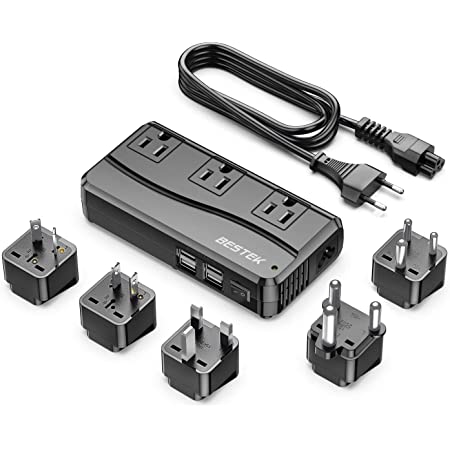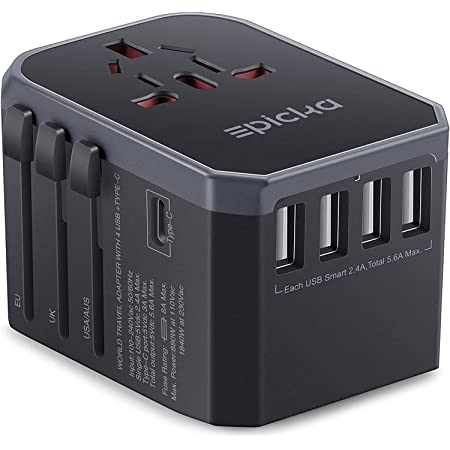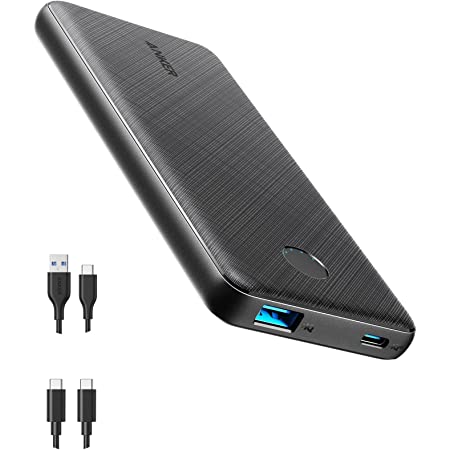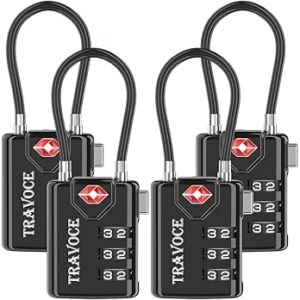Plug For Cuba: What You Need To Know
What is the plug for Cuba? Before you travel, check the information below to make sure your electronic devices are compatible with the outlet type and voltage.
Electrical Summary
Cuba uses outlet types A, B, C, L at a voltage of 110/220V and a frequency of 60 Hz.
Plug Compatibility: Type A, Type B, Type C, Type L
Voltage: 110/220V
Frequency: 60 Hz
Type A

Type B

Type C

Type L

Can North Americans use Electronics in Cuba without an Adapter?
No! North Americans may need an adapter for the outlets and a transformer for the voltage when traveling to Cuba. North Americans device plugs will not work with all outlet types in Cuba. Also, the voltage in Cuba may be different from North American voltages.
Can Europeans use Electronics in Cuba without an adapter?
No! Europeans may need an adapter for the outlets and a transformer for the voltage when traveling to Cuba. European device plugs will not work with all outlet types in Cuba. Also, the voltage in Cuba may be different from European voltages.
What Outlet does Cuba Use?
Type A

Type B

Type A plug sockets have two flat pins and no grounding pin. These plugs are typically used with devices that have a voltage of 110-120V.
Type B plug sockets have two round pins and a grounding pin. These plugs are typically used with devices that have a voltage of 110-120V.
Type C

Type L

Type C plug sockets have two round pins and no grounding pin. These plugs are typically used with devices that have a voltage of 220-240V.
Type L plug sockets have three round pins and a grounding pin. These plugs are typically used with devices that have a voltage of 220V.
Recommended Products:
Should I use a VPN when traveling?
YES! Using a VPN when traveling is highly recommended to protect your online privacy and security. Public Wi-Fi networks in hotels, airports, and cafés are often unsecured, making you vulnerable to hackers and data theft. A VPN encrypts your internet connection, safeguarding sensitive information like passwords and banking details. It also allows you to bypass geo-restrictions, granting access to streaming services and websites that may be blocked in certain countries. Additionally, a VPN helps prevent government surveillance and ISP tracking. For a seamless and secure browsing experience while traveling, choose a reliable VPN with fast speeds and strong encryption.
Cuba Travel Essentials:
Is it safe to drink water in Cuba?
To be on the safe side, you can use common precautions such as boiling tap water for at least one minute, using water purification tablets, or drinking bottled water. It’s also important to note that ice may be made from tap water and that foods may be washed or prepared with tap water.
We recommend always packing a filtered water bottle when traveling!
Travel Essentials
Be sure to check our list of travel essentials before your trip!
Should I get travel insurance when traveling to Cuba?
It is generally recommended to get travel insurance when traveling to a different country. Travel insurance can provide financial protection and peace of mind in case of unexpected events, such as medical emergencies, trip cancellations, lost or stolen baggage, or other travel-related mishaps.
Travel insurance can cover various expenses related to your trip, such as medical expenses, emergency medical transportation, trip cancellation or interruption, lost or stolen baggage or personal belongings, and other travel-related expenses.
Before purchasing travel insurance, it’s important to carefully review the policy details, including the coverage limits, exclusions, and any applicable deductibles or copays. You should also make sure that the policy covers any activities or destinations that you plan to participate in or visit during your trip. Click here to price for Travel Insurance for Cuba
Travel Summary
The capital city, Havana, is a must-visit destination in Cuba. The city is known for its stunning architecture, colorful streets, and lively music scene. Visitors can explore the many museums and art galleries, visit the famous Malecon seafront promenade, and enjoy the city’s vibrant nightlife.
Cuba is also home to some of the most beautiful beaches in the Caribbean, including Varadero and Guardalavaca. Visitors can soak up the sun on white sandy beaches, swim in crystal clear waters, and enjoy a variety of water sports such as snorkeling, scuba diving, and fishing.
Another popular destination in Cuba is the historic city of Trinidad, a UNESCO World Heritage Site. The city is known for its well-preserved colonial architecture, cobblestone streets, and lively music scene. Visitors can explore the many museums, art galleries, and historical landmarks, including the Plaza Mayor and the Museo Romantico.
Cuba is famous for its cuisine, which is a blend of Spanish, African, and Caribbean influences. Local dishes include ropa vieja, a stewed beef dish, and arroz con pollo, a chicken and rice dish. Cuba is also famous for its rum and cigars, which can be enjoyed in the many bars and restaurants around the country.
In conclusion, Cuba is a must-visit destination for travelers seeking a unique and vibrant Caribbean experience. Its beautiful beaches, rich history, and vibrant culture make it a unique and rewarding destination.
Traveling to another country? Check out our Countries page for more info on countries like the United States, Bahamas, Dominican Republic, Jamaica, Cayman Islands





